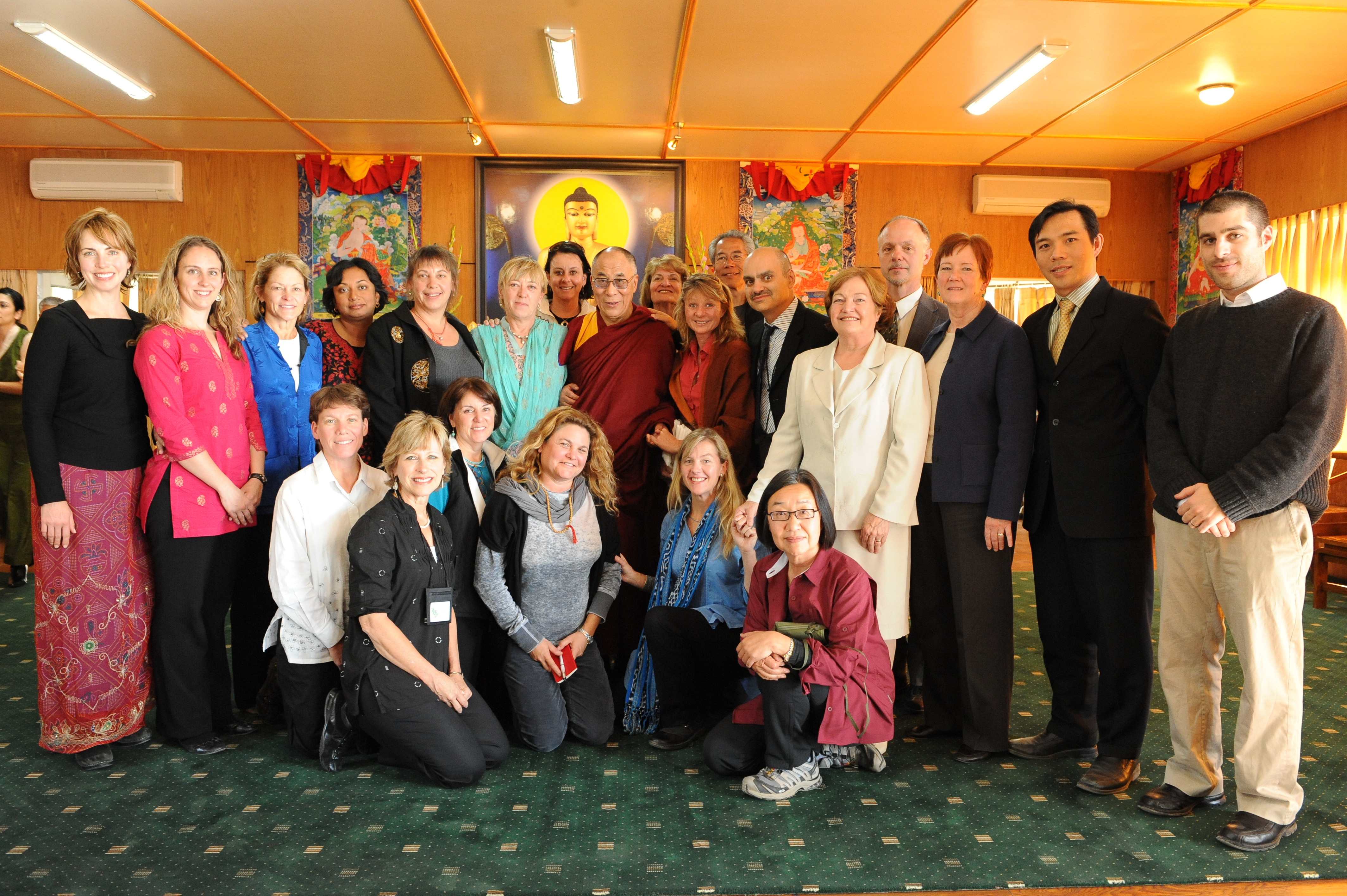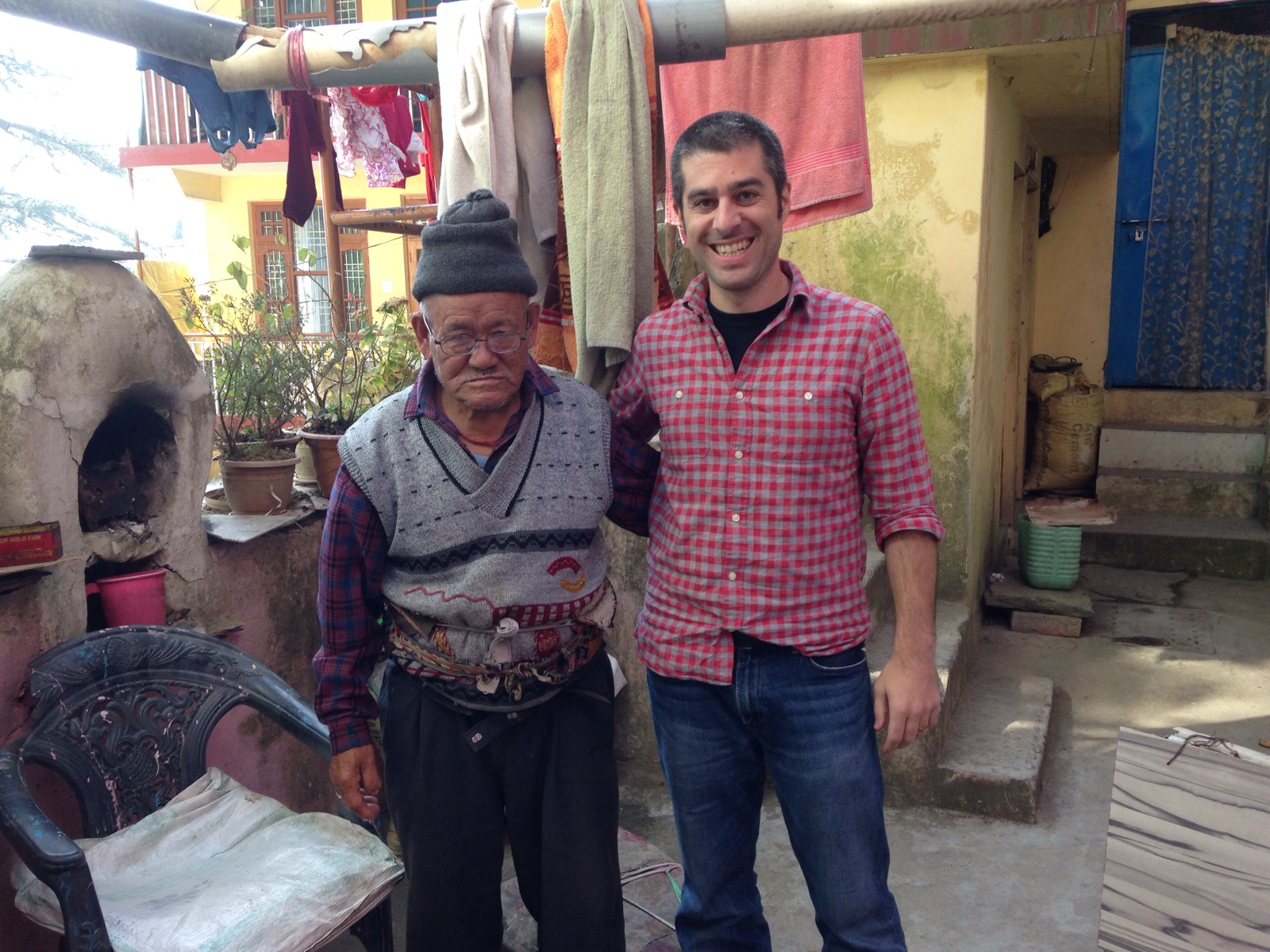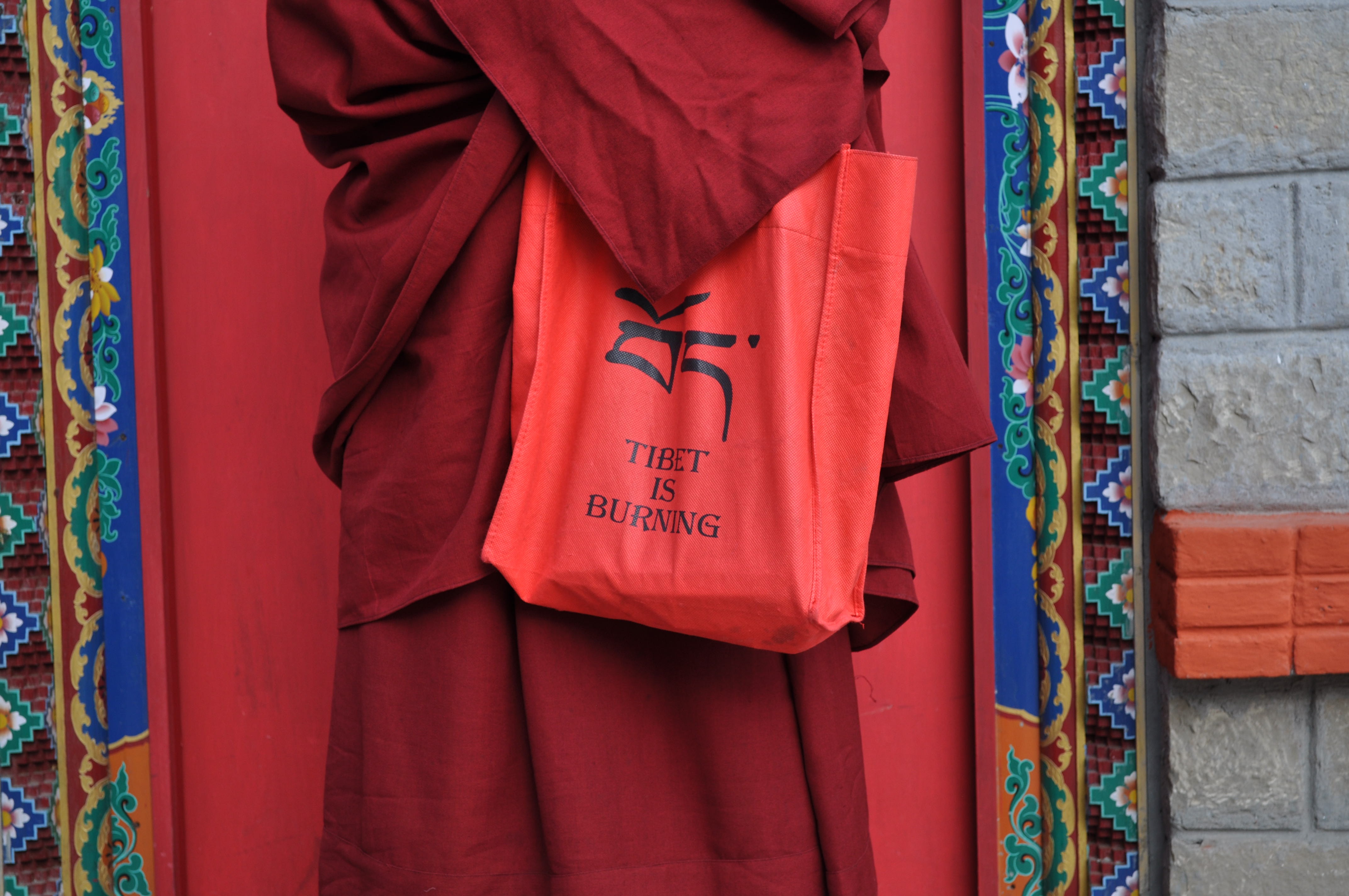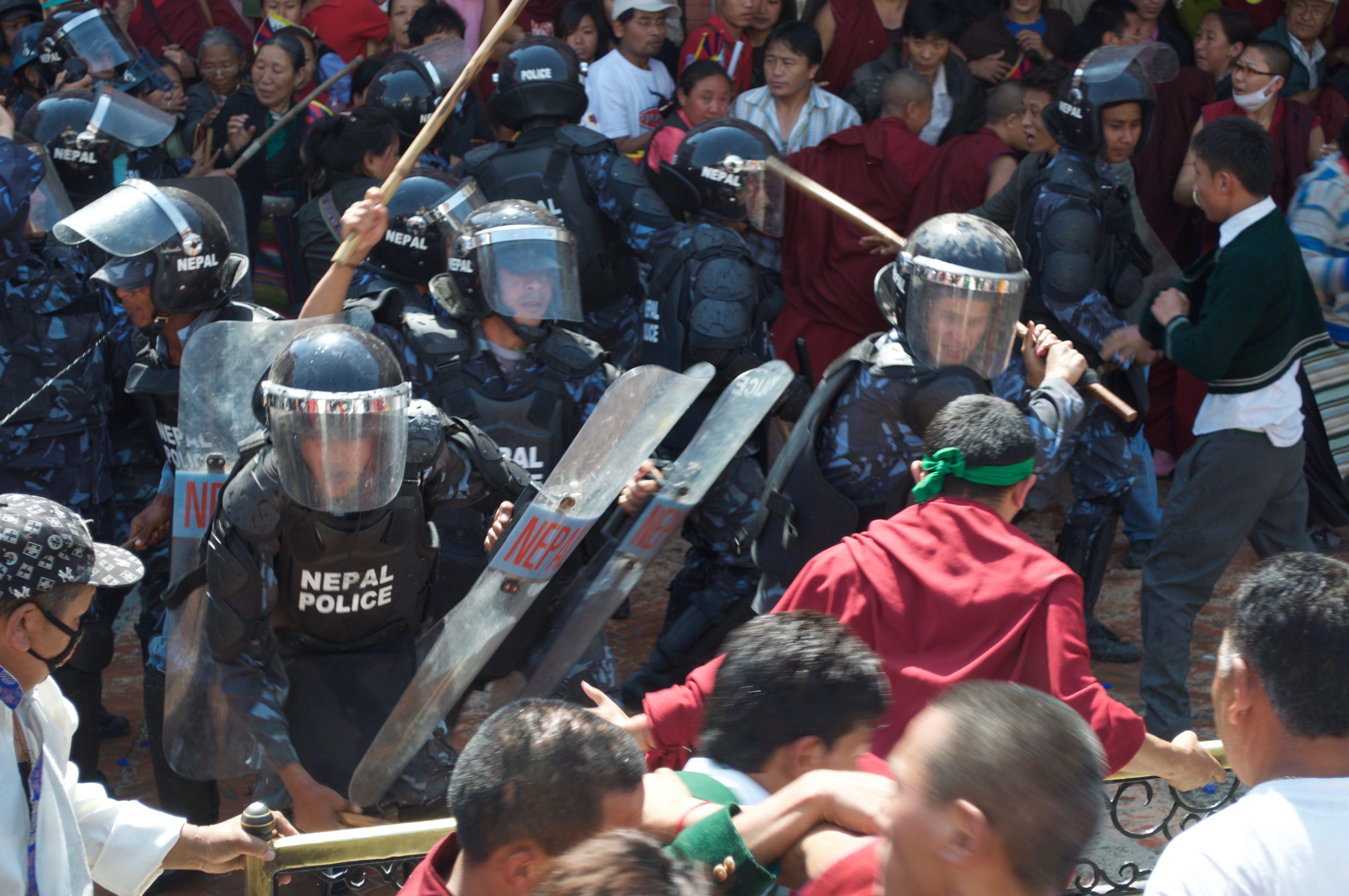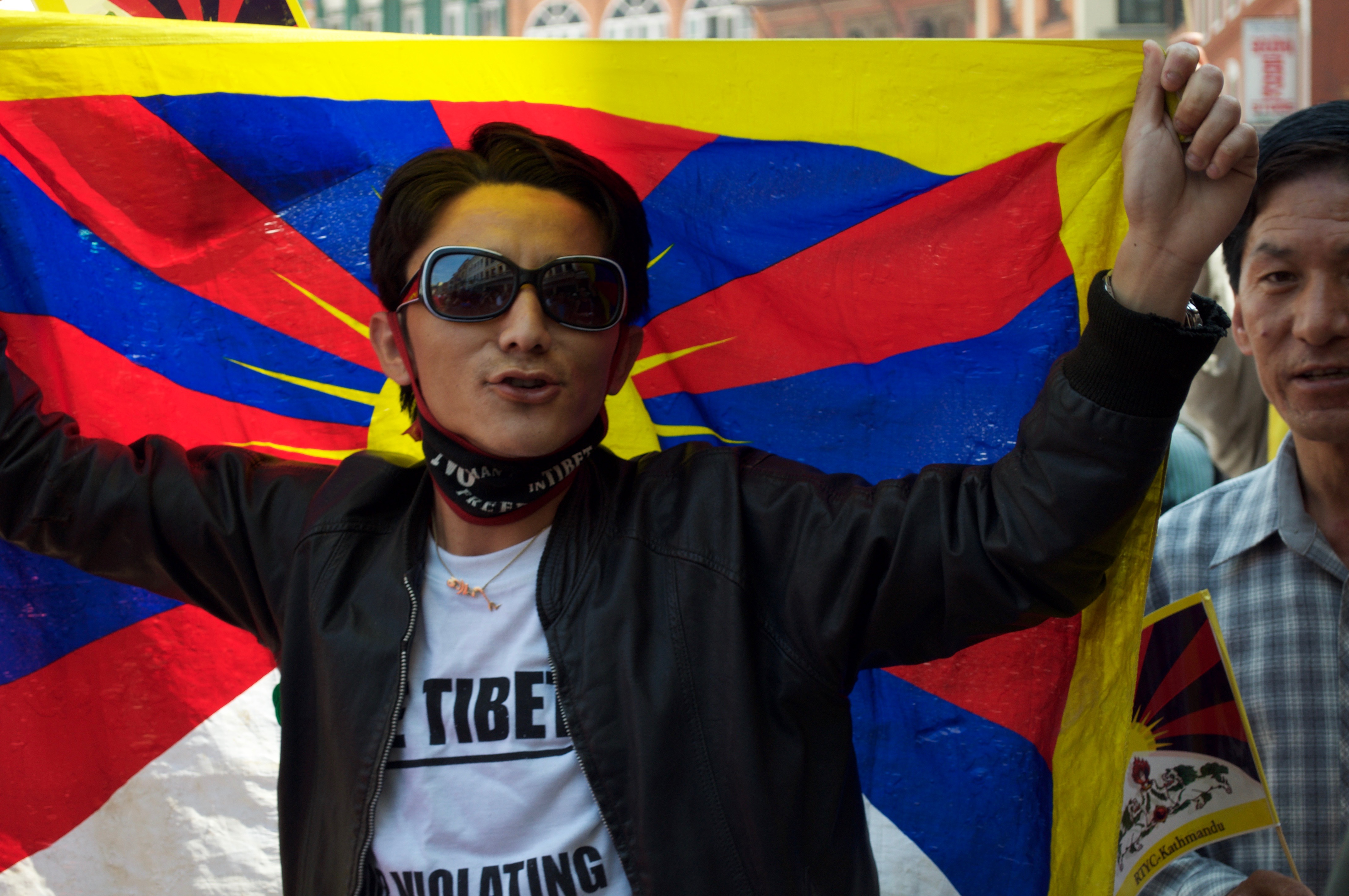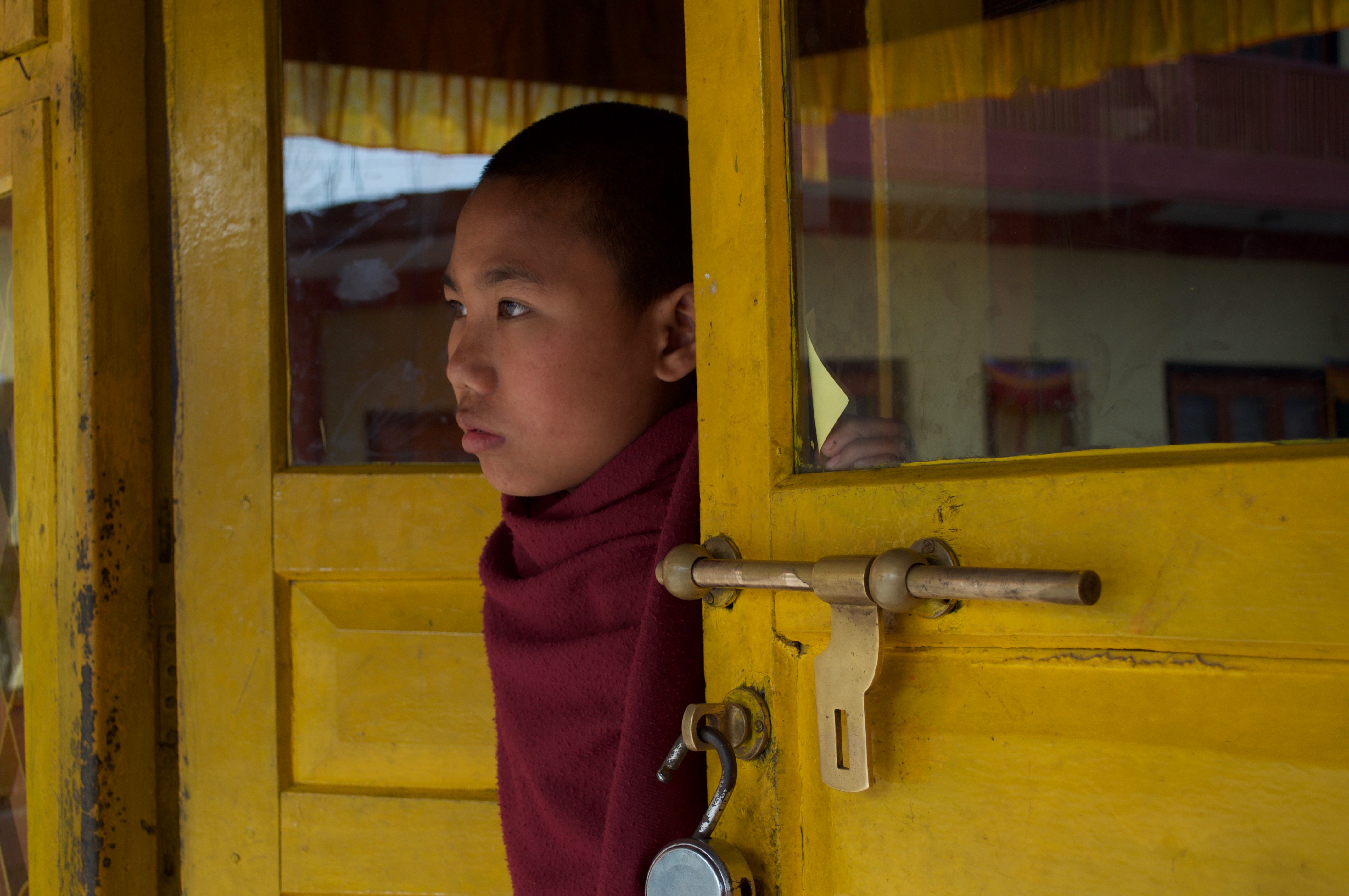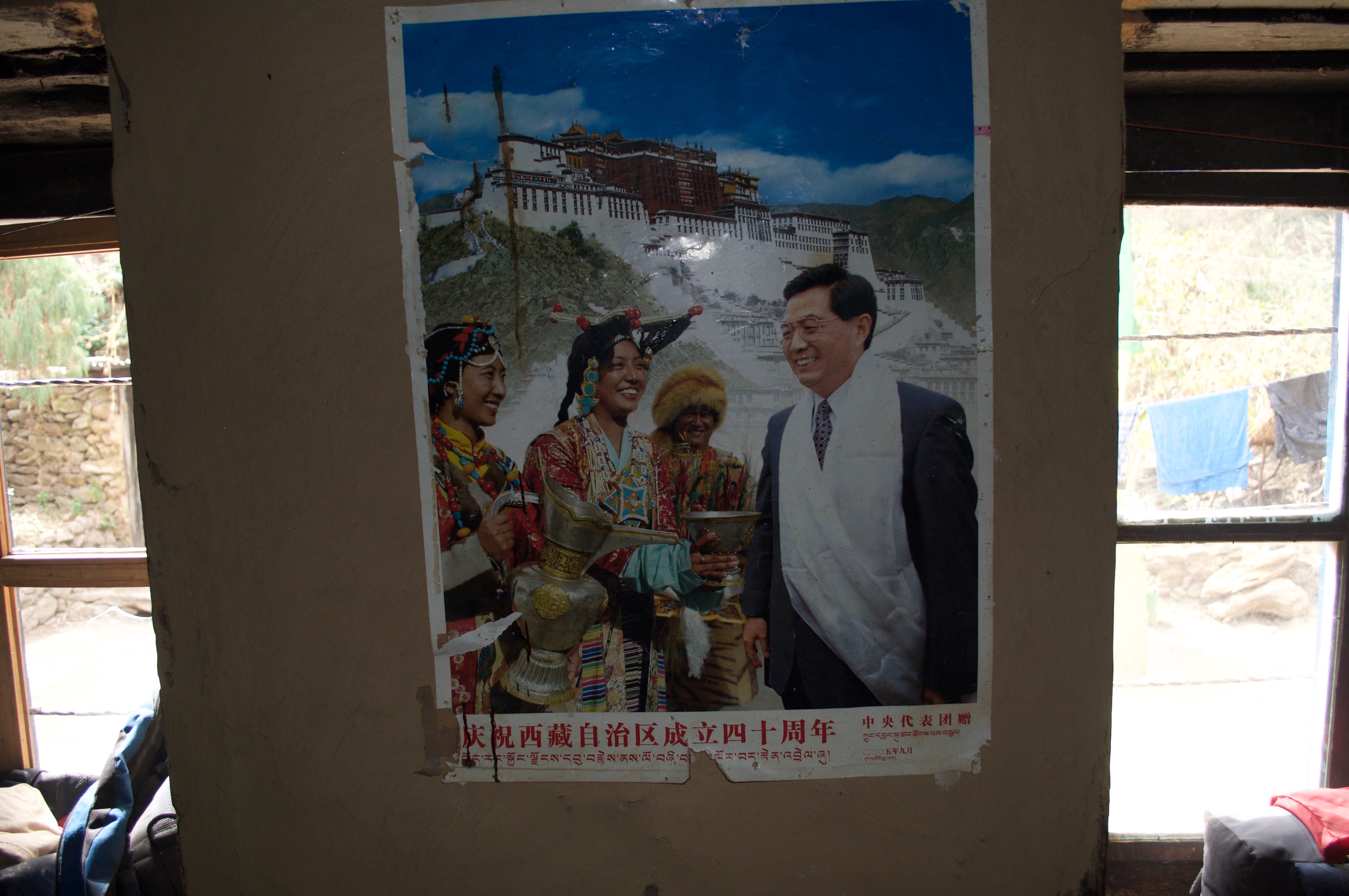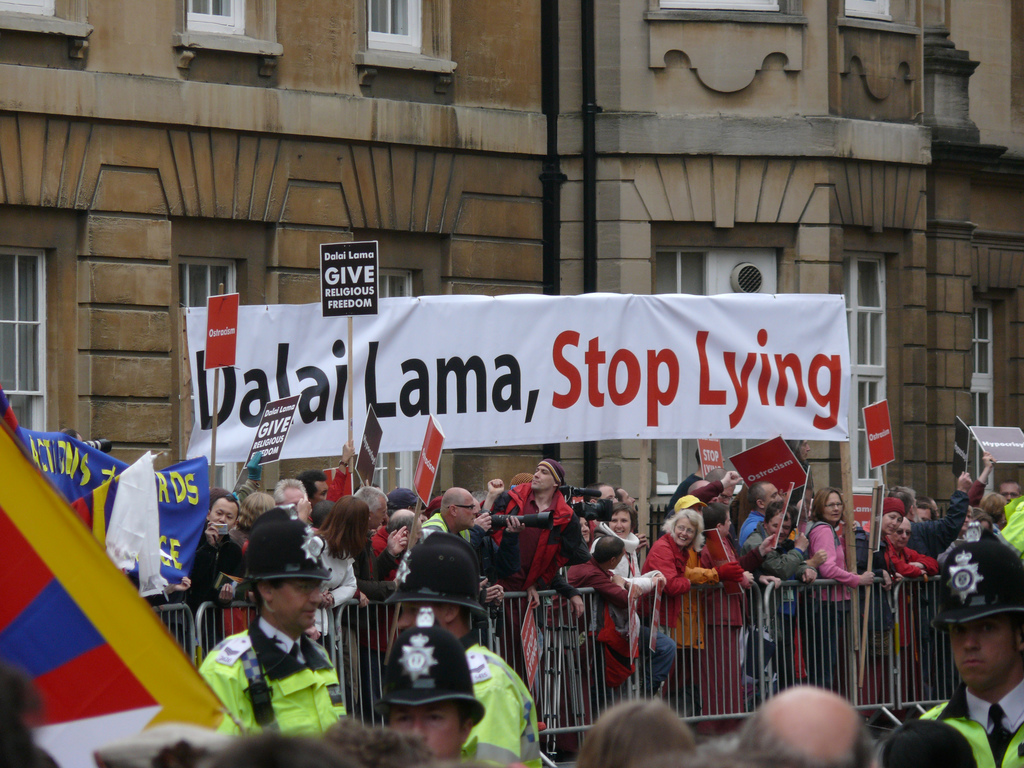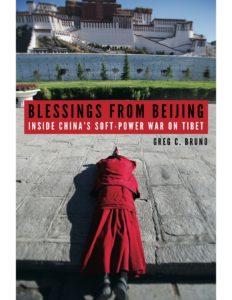 As the 60th anniversary of China’s 1959 invasion of Tibet approaches, one of history’s most successful cultural relocations is under strain. With pressure in Asia mounting, the Tibetan refugee families that have made their homes outside of China – in the mountains of Nepal, the jungles of India, or the cold concrete houses perched on a hillside high above the Dalai Lama’s monastery – are migrating once again.
As the 60th anniversary of China’s 1959 invasion of Tibet approaches, one of history’s most successful cultural relocations is under strain. With pressure in Asia mounting, the Tibetan refugee families that have made their homes outside of China – in the mountains of Nepal, the jungles of India, or the cold concrete houses perched on a hillside high above the Dalai Lama’s monastery – are migrating once again.
Blessings from Beijing untangles the ribbons of power China ties to Tibetans beyond its borders and examines the political, social, and economic pressures that are threatening to destroy Tibet’s refugee communities. Reported over eight years and guided by nearly two decades of living in and working among Tibetan areas, Blessings from Beijing journeys to the front lines of this fight, into the high Himalayas of Nepal, where Chinese agents pay off Nepali villagers to inform on Tibetan asylum seekers; to the monasteries of southern India, where pro-China monks wish the Dalai Lama dead; inside Asia’s meditation caves, where lost souls ponder the fine line between love and war; and to the streets of New York City, where the next generation of refugees strategizes how to survive China’s relentless assault.
But Blessings from Beijing does not stop at the well-worn tales of Chinese meddling and political intervention. It goes beyond them, and within them, to explore how China’s strategy is changing the Tibetan exile community, most likely forever.
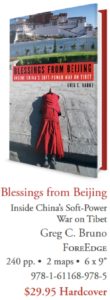
With a novelist’s gift for rendering scenes with clarity and nuance, Blessings from Beijing documents the emerging tragedy of Tibet’s exiles who have been flung to the far corners of the globe as a stateless people by China’s brutal and ongoing decimation of Tibet. Bruno is a deeply empathetic narrator who has immersed himself in the Tibetan diaspora community for over a decade and the results of his knowledge and profound understanding of the situation have led to a remarkable book that represents an important contribution to the literature on Tibet after the Chinese invasion.
–Jonathan Green, author of Murder in the High Himalaya: Loyalty, Tragedy and Escape from Tibet
